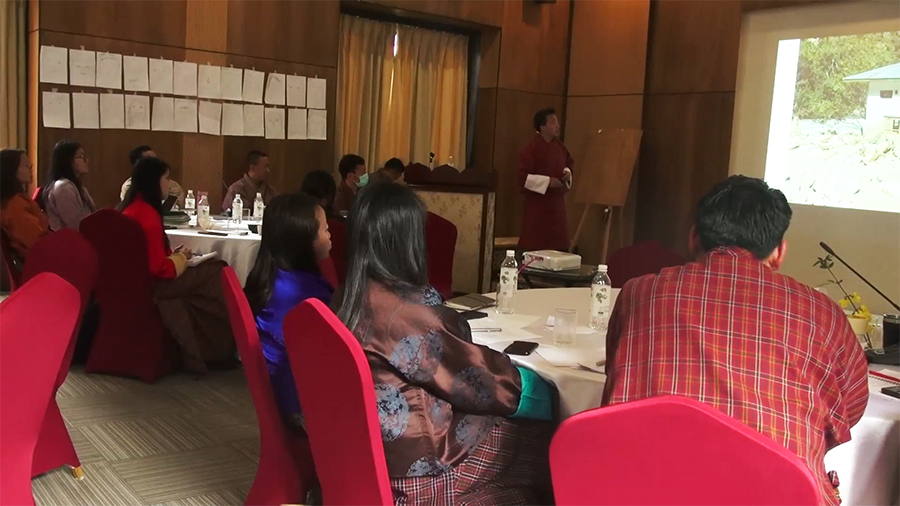
Rural communities in Bhutan and throughout the world live with the impacts of climate change in the form of floods, irregular rain, droughts, pest infestations and diseases among others. However, climate financing to mitigate and adapt to the impacts of climate change in local communities is almost non-existent. The need for climate financing in local governance was the highlight of discussions during the recent capacity development workshop for the media fraternity and financial institutions in Paro.
Today, the total budget a gewog receives is used as per the resource allocation formula for developmental activities.
Experts say there are no specific budget allocated for climate change and its impacts, and other disasters at the gewog level.
“We get budget in the form of block grant at gewog and district level. That we have to allocate as per the guidelines. As of now, we do not have separate budget allocation specifically for disaster management and climate change impacts. But we are mindful about it when we develop plans and allocate budgets,” said Tshering Dorji, Chairperson of Dzongkhag Tshogdu in Paro.
“As of now, Tshogpas gather people’s demand for amenities in their communities from the chiwog level. Accordingly, we plan and put up to a higher decision-making body like the Dzongkhag Tshogdu. So far, we gave priorities to the people’s needs only. A few months ago, I got an opportunity to sit in one of the training capacity development on climate change and now, at least, we know how important it is to make plans as per climate change adaptation,” said Sherab Lham, Hungrel Gup.
The lack of climate change awareness is expected to change through advocacies and capacity development of local leaders and other relevant agencies.
“Our target is that they will be able to plan any developmental activities in line with climate change and its adaptive measures. Similarly, we also thought the financial institutes and media should be aware of the situation, so we met together to thrash out this issue,” said Sangay Dorji, Sr. Programme Officer of the Department of Local Government and Disaster Management.
“Now with climate change people have to face many new challenges for the first time. For that, we have to train and advocate the local leaders, as they are the key people that develop plans and execute them at the local level. Therefore, if they understand the concept they would align their developmental plans with climate change and its impacts,” said Tshering Penjor, Programme Specialist of the UN Capital Development Fund.
The workshop highlighted crop diversification, improved irrigation systems, community forest management, replacement or rectification of infrastructures, water source management, and establishment of community-based insurance or compensation schemes to help local communities to mitigate and adapt to the impacts of climate change.
Namgay Wangchuk, Paro
Edited by Sherub Dorji





